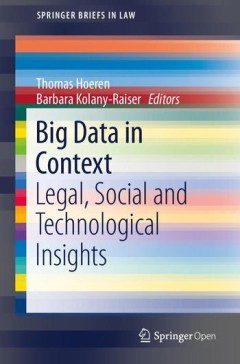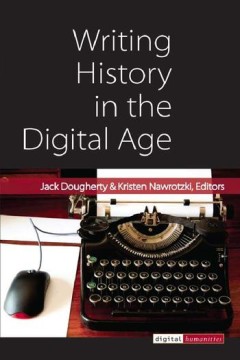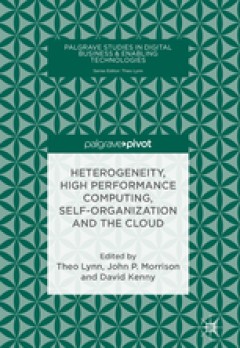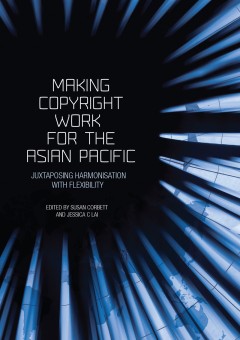Filter by
# Debug Box
/var/www/htdocs/pustaka-digital/lib/SearchEngine/SearchBiblioEngine.php:688 "Search Engine Debug 🔎 🪲"
Engine Type ⚙️: "SLiMS\SearchEngine\SearchBiblioEngine"
SQL ⚙️: array:2 [ "count" => "select count(sb.biblio_id) from search_biblio as sb where sb.opac_hide=0 and ((match (sb.topic) against (:subject in boolean mode)))" "query" => "select sb.biblio_id, sb.title, sb.author, sb.topic, sb.image, sb.isbn_issn, sb.publisher, sb.publish_place, sb.publish_year, sb.labels, sb.input_date, sb.edition, sb.collation, sb.series_title, sb.call_number from search_biblio as sb where sb.opac_hide=0 and ((match (sb.topic) against (:subject in boolean mode))) order by sb.last_update desc limit 10 offset 120" ]
Bind Value ⚒️: array:1 [ ":subject" => "'+\"Data\"'" ]

New horizons for a data-driven economy : a roadmap for usage and exploitation…
In this book readers will find technological discussions on the existing and emerging technologies across the different stages of the big data value chain. They will learn about legal aspects of big data, the social impact, and about education needs and requirements. And they will discover the business perspective and how big data technology can be exploited to deliver value within different se…
- Edition
- -
- ISBN/ISSN
- 9783319215693
- Collation
- xx, 303p. : ill.
- Series Title
- -
- Call Number
- 005.7 NEW n

Designing digital work : concepts and methods for human-centered digitization
Combining theory, methodology and tools, this open access book illustrates how to guide innovation in today’s digitized business environment. Highlighting the importance of human knowledge and experience in implementing business processes, the authors take a conceptual perspective to explore the challenges and issues currently facing organizations. Subsequent chapters put these concepts int…
- Edition
- -
- ISBN/ISSN
- 9783030122591
- Collation
- xxi, 435p. : ill.
- Series Title
- -
- Call Number
- 650.0285 OPP d

Real-time linked dataspaces : enabling data ecosystems for intelligent systems
This open access book explores the dataspace paradigm as a best-effort approach to data management within data ecosystems. It establishes the theoretical foundations and principles of real-time linked dataspaces as a data platform for intelligent systems. The book introduces a set of specialized best-effort techniques and models to enable loose administrative proximity and semantic integratio…
- Edition
- -
- ISBN/ISSN
- 9783030296650
- Collation
- xxiii, 325p. : ill.
- Series Title
- -
- Call Number
- 005.7565 CUR r

Computational conflict research
This open access book brings together a set of original studies that use cutting-edge computational methods to investigate conflict at various geographic scales and degrees of intensity and violence. Methodologically, this book covers a variety of computational approaches from text mining and machine learning to agent-based modelling and social network analysis. Empirical cases range from migra…
- Edition
- -
- ISBN/ISSN
- 9783030293338
- Collation
- xviii, 264p. : ill
- Series Title
- -
- Call Number
- 300.00285 COM c

Big data in context : legal, social and technological insights
This book sheds new light on a selection of big data scenarios from an interdisciplinary perspective. It features legal, sociological and economic approaches to fundamental big data topics such as privacy, data quality and the ECJ’s Safe Harbor decision on the one hand, and practical applications such as smart cars, wearables and web tracking on the other. Addressing the interests of research…
- Edition
- -
- ISBN/ISSN
- 9783319624617
- Collation
- xii, 120p. : ill.
- Series Title
- SpringerBriefs in Law
- Call Number
- 343.099 BIG b

Writing history in the digital age
A born-digital project that asks how recent technologies have changed the ways that historians think, teach, author, and publish
- Edition
- -
- ISBN/ISSN
- 9780472072064
- Collation
- xiii, 283p. : ill.
- Series Title
- -
- Call Number
- 902.85 WRI w

Big Digital Humanities : imagining a meeting place for the humanities and the…
Big Digital Humanities has its origins in a series of seminal articles Patrik Svensson published in the Digital Humanities Quarterly between 2009 and 2012. As these articles were coming out, enthusiasm around Digital Humanities was acquiring a great deal of momentum and significant disagreement about what did or didn’t “count” as Digital Humanities work. Svensson’s articles provided a w…
- Edition
- -
- ISBN/ISSN
- 9780472073061
- Collation
- xx, 279p. : ill.
- Series Title
- -
- Call Number
- 001.30285 SVE b

big data agenda: data ethics and critical data studies
This book highlights that the capacity for gathering, analysing, and utilising vast amounts of digital (user) data raises significant ethical issues. Annika Richterich provides a systematic contemporary overview of the field of critical data studies that reflects on practices of digital data collection and analysis. The book assesses in detail one big data research area: biomedical studies, foc…
- Edition
- -
- ISBN/ISSN
- 9781911534730
- Collation
- iv, 148 pages ; 24 cm.
- Series Title
- CDSMS (Series)
- Call Number
- 005.7 RIC b

Heterogeneity, high performance computing, self-organization and the cloud
This open access book addresses the most recent developments in cloud computing such as HPC in the Cloud, heterogeneous cloud, self-organising and self-management, and discusses the business implications of cloud computing adoption. Establishing the need for a new architecture for cloud computing, it discusses a novel cloud management and delivery architecture based on the principles of self-or…
- Edition
- -
- ISBN/ISSN
- 9783319760384
- Collation
- XXI, 165 p.
- Series Title
- -
- Call Number
- 658.4038 LYN h

Making copyright work for the Asian Pacific : juxtaposing harmonisation with …
This book provides a contemporary overview of developing areas of copyright law in the Asian Pacific region. While noting the tendency towards harmonisation through free trade agreements, the book takes the perspective that there is a significant amount of potential for the nations of the Asian Pacific region to work together, find common ground and shift international bargaining power. Moreove…
- Edition
- -
- ISBN/ISSN
- 9781760462390
- Collation
- ix, 313p. : ill.
- Series Title
- -
- Call Number
- 346.190482 MAK m
 Computer Science, Information & General Works
Computer Science, Information & General Works  Philosophy & Psychology
Philosophy & Psychology  Religion
Religion  Social Sciences
Social Sciences  Language
Language  Pure Science
Pure Science  Applied Sciences
Applied Sciences  Art & Recreation
Art & Recreation  Literature
Literature  History & Geography
History & Geography